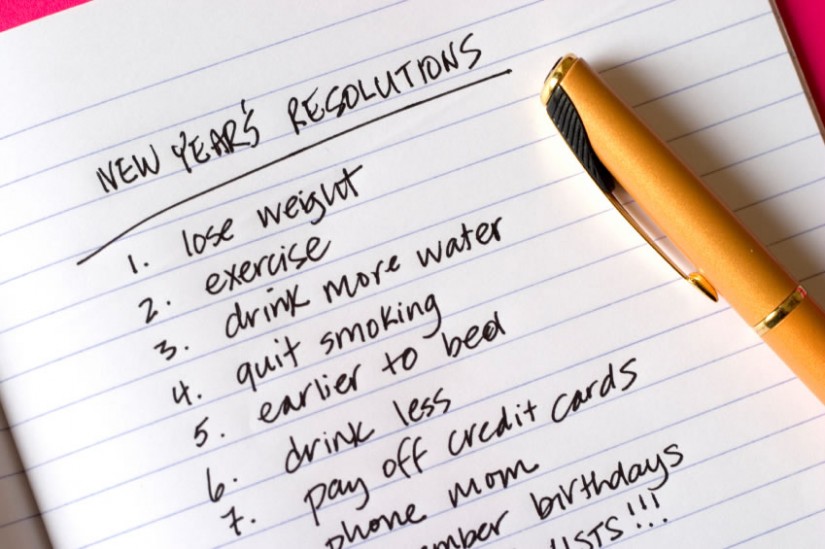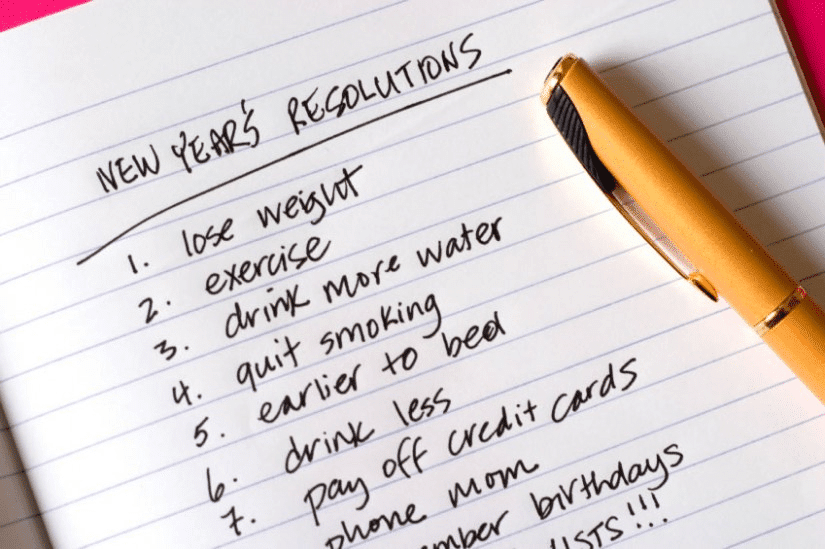We have all being there. Writing down a list of New Year resolutions, sticking to them for the first few weeks or months at most, and then forgetting that the plan even exists. Ever wondered why this happens?
In this article, we have highlighted various reasons why your New Year resolutions do not stick. We also went further to give practical solutions to how to fix this problem. If this is what you would like to learn, kindly scroll down and keep reading.
Here are the Top 7 Reasons Why New Year Resolutions Fail to Stick

1. Having a List of ‘Whats’ without ‘Whys’
One of the reasons your New Year resolutions don’t stick is that you certainly know what you want but fail to think of why you want those things.
When making resolutions in the New Year, think deeply, and be sure why you want the things you are about to write down. Be true to yourself.
2. Putting in Half-Hearted Attempts
Experiencing a change is only half of the story. First, you need to be ready to change. Your heart needs to be in sync with what you ultimately want.
Saying you want to lead a healthier lifestyle when your heart is not in won’t help you achieve it. You have to be down for your resolutions.
3. Your Resolutions Lack Plans/Goals
We’re all familiar with the saying thatIf you fail to plan, you plan to fail. But as cliché as the statement may sound, its meaning is golden. Without a plan, the results of your resolutions will likely not be in view.
However, when planning, you need to make the right plan. Later on in this article, we have discussed the right way to create the right strategy or goal.
4. Lack of Self-Tracking
It is hard to know whether you are making progress if you are not tracking your progress. Today, there are tons of apps out there that can help you track your fitness journey, spending, and more.
Monitoring your progress as you go would help you overcome potential barriers and motivate you to keep going.
5. Being Overconfident

While the lack of confidence is terrible for achieving goals, the presence of overconfidence can be even worse. When you have convinced yourself that achieving all your resolutions would be easy, you might get too relaxed and unprepared.
Doing something you haven’t succeeded in doing before is hard. Accept this challenging part of the change and your weaknesses, and equip yourself to face your resolutions head-on.
6. Having SMART Resolutions
Your resolutions can be likened to goals. They are goals. And the efficient rule of achieving goals is to have SMART goals, with SMART being the acronym of the following:
S – Specific
M – Measurable
A – Achievable
R – Realistic
T – Time-Bound
Specific
Specific resolutions have higher chances of being achieved than general resolutions. Create sufficient details to avoid indecisions concerning precisely what you should be doing.
An instance of a general resolution would “Read more books this year,” on the other hand, a specific resolution would be “Read and complete 40 books this year by reading 3 chapters every day before bedtime.”
Measurable
Make resolutions with measurable progress. This is to enable you to see the changes as they occur. A measurable resolution must have a result that you can assess either on hit or miss, sliding scale (1-10), or pass or fail.
Based on our earlier example, “Read and complete 40 books this year by reading 3 chapters every day before bedtime” would pass for a measurable resolution because you measure if you completed 3 chapters from a book per day.
Achievable
Achievable resolutions have realistic results, given your current social, economic, and time availability. Achieving solutions can be more of ‘stress’ if the product is challenging to begin with.
Again, from our earlier example, we resolved to read more. We planned on doing this by reading 3 chapters every day. To check if this resolution is achievable, you have to ensure if reading 3 chapters per day is possible for you. If not, then this would not pass for an attainable resolution.
Realistic
Take baby-steps on what you can and will do, and experience the glee of meeting your resolutions. Based on your daily schedule, is reading 3 chapters every day realistic for you? Will reducing the number of chapters to 2 seem more practical for you? If so, tweak it to fit the reality of things.
N.B
This doesn’t mean that you should go below what you can handle. The idea is to make your resolutions more realistic.
Time-Bound
Aside from the fact that your resolutions can be likened to goals, some goals come under each resolution. You can break these goals down into bits and achieve a single resolution by attaching timeframes to each of these bits.
From our example, if most of the books you’ve set out to read have between 35 to 40 chapters. It means that you need about a week to complete a book and 3 months to complete 12 books. In this way, you should give a time-bound of altogether 12 books in every quarter of the year. And before the end of the year, you should have completed the entire 40 books.
7. Lack of Self-Believe
Sometimes, just a pat on your back by yourself can keep you going. As you progress in your goals and resolutions, congratulate yourself and tell yourself that you’ve got this.
While you shouldn’t laze around instead of working towards achieving your resolutions, you want to encourage yourself to keep going. If all you did during the week was read a chapter every day, despite your goal was to read 3 chapters, don’t beat yourself up. Dust yourself, encourage yourself, and try again.
You should do this because most people actually startup well but fall along the way. However, little encouragement here and there have ways of putting you back on track.
Conclusion
Writing down goals and resolutions that you would like to see happen is only a part of the story. To see all of your resolutions come in view, there are ways to go about it, including knowing why you want that change, creating the right plans, monitoring your progress, having SMART resolutions, and believing in yourself.
Written exclusively for our company by Sherise
Source – CoolMambo.com


